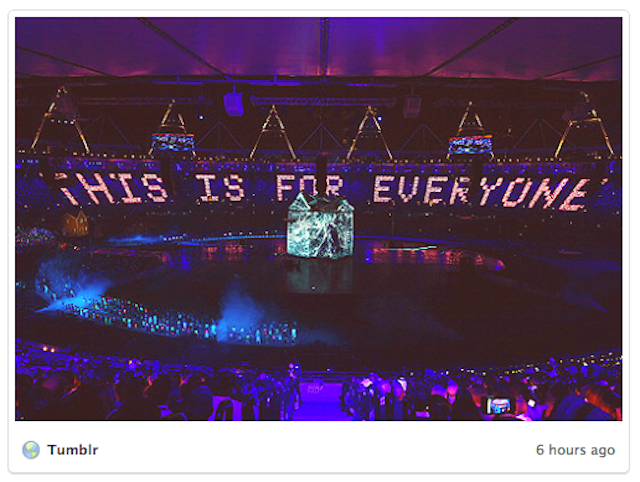Danny Boyle and his army of volunteers are to be commended on a stunning television production for the London 2012 Olympic Games opening ceremony. But if you only watched one screen, you missed a significant dimension of responses from a global audience, and that dimension was at least as interesting.
For both scholarly mass-media analysts and media practitioners, if it wasn’t clear already, the responsive dimension of social media now forever changes the very concept of event broadcasting.
Social media responses tend to polarise around positive and negative evaluations of an event in progress. As I have noted before, memes are especially interesting indicators of the nuances of such evaluative sentiment. The Olympics are no exception in general, but this became very pronounced over the course of the opening ceremony.
Winners: James Bond and the Queen
There had been much speculation that James Bond would participate in the opening ceremony, and about just what his role would be.
As it turned out, his role was to collect the Queen and bring her to the ceremony in a spectacular manner.
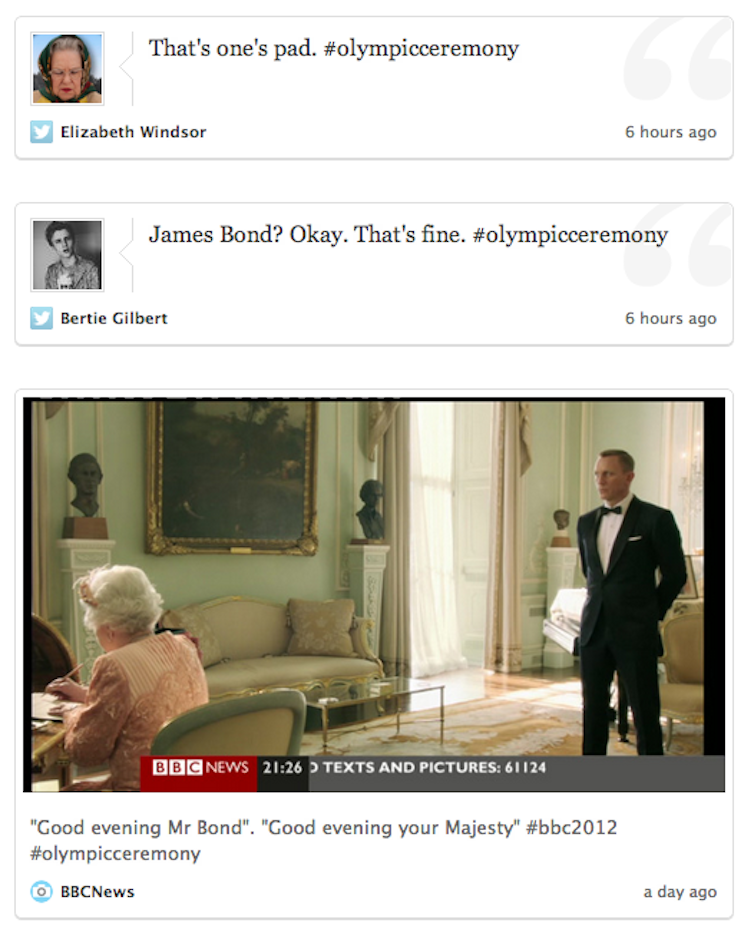
The posts showing such moments often involved Instagram shots of television screens, which was itself what we might call an infra-structural meme.
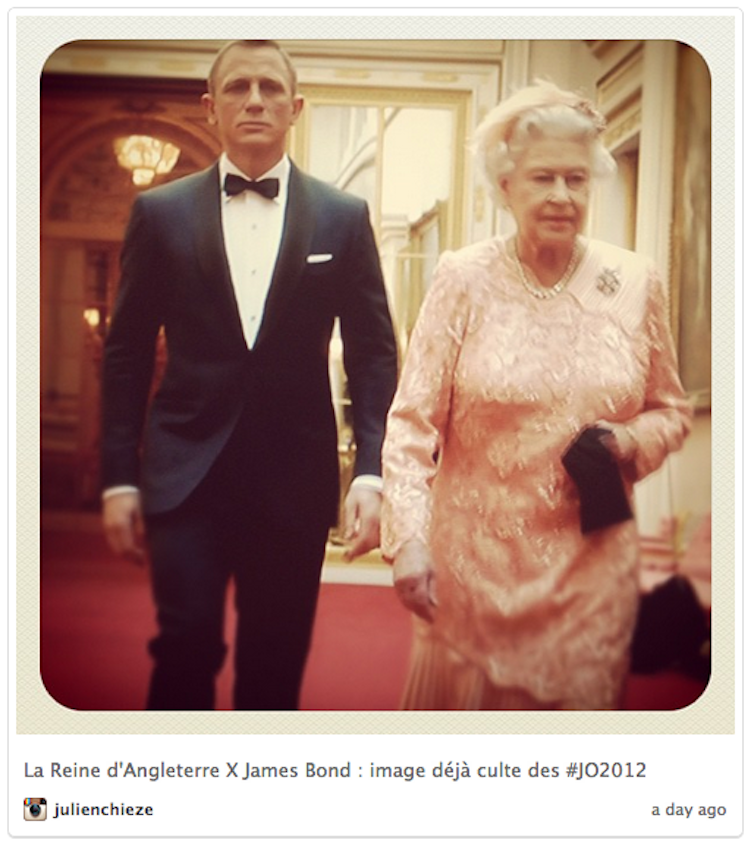
In a combination of pre-filmed and live footage, Bond escorted the Queen to her helicopter, allowing for much speculation on their relationship.
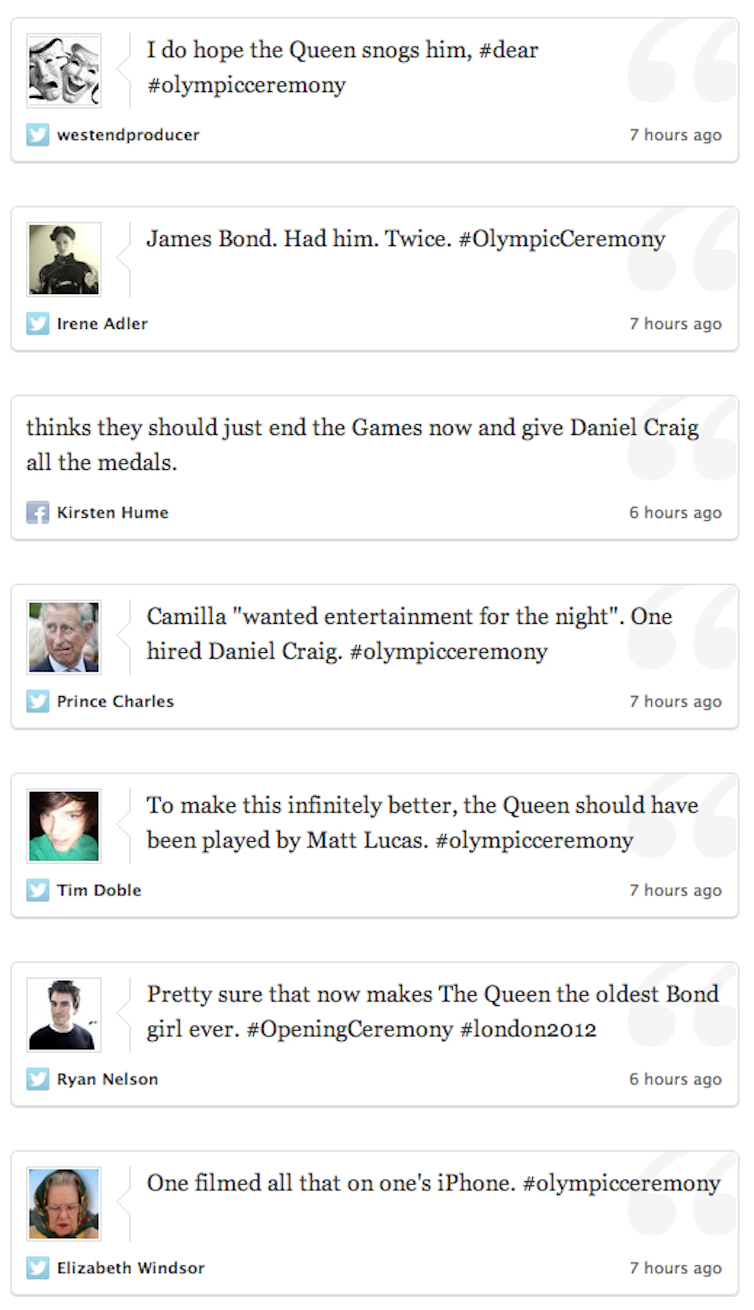
Then, above the stadium, Bond escorted the Queen out of the helicopter with a parachute. This was rapidly packaged into image macros of the jump captioned with memetic acronym YOLO (“You Only Live Once”).
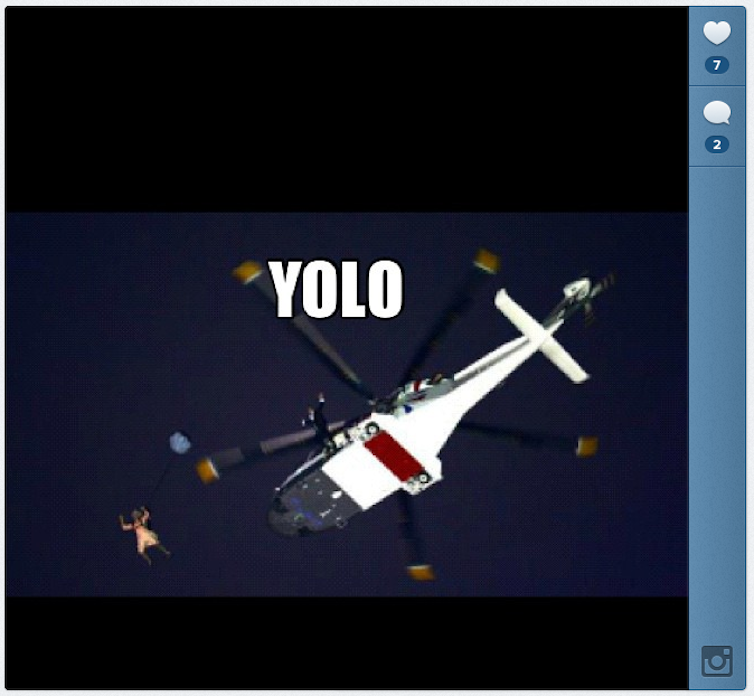
This set the tone for images of the Queen as extremely tough, a sentiment strengthened by what can only be described as her somewhat dour expression throughout the ceremony. However, rather than attacking the Queen, these image macros tended to celebrate the sense of being tough despite age and to side with her apparent displeasure during the long parade of athletes.
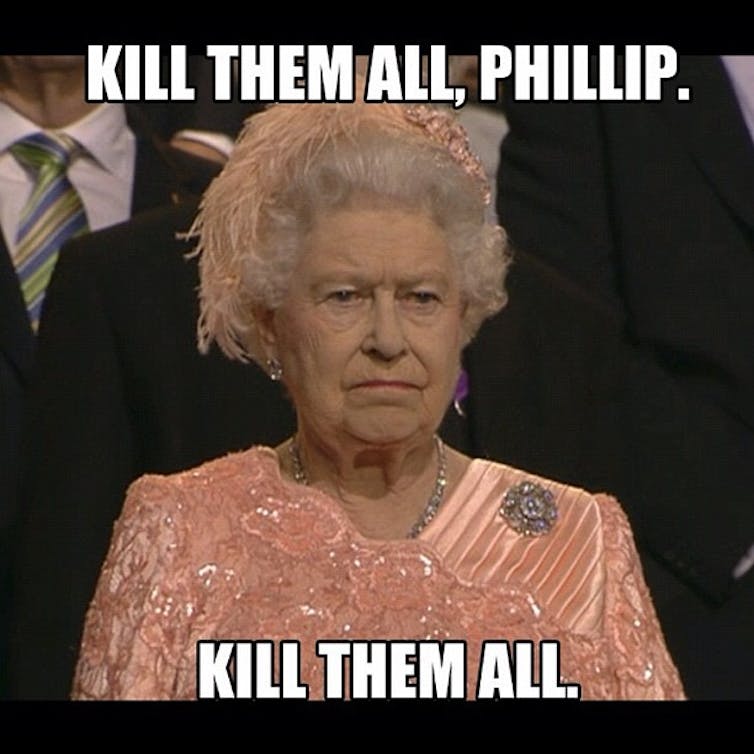
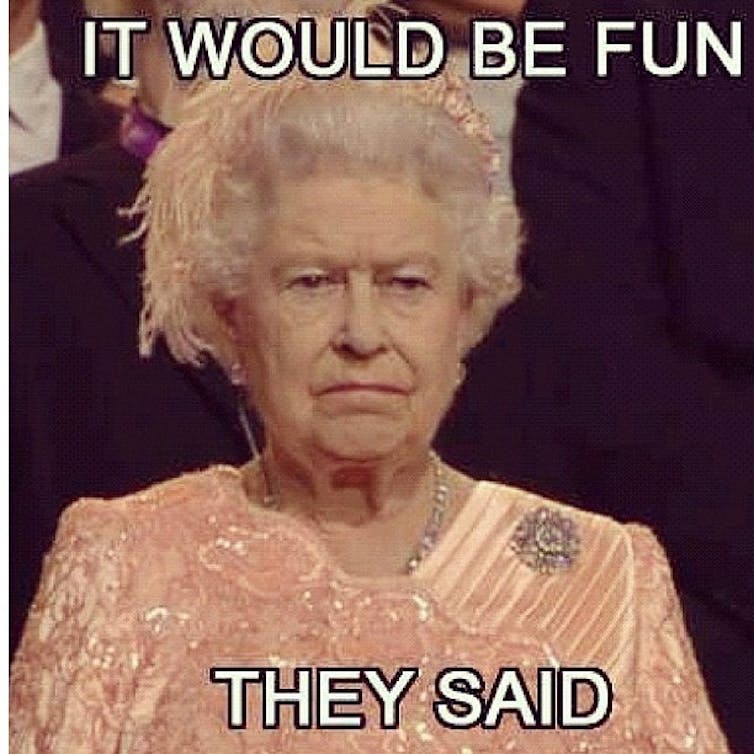
The amusing concept of a tough Queen was surely calculated based upon the skydiving stunt, but whether the later memes were considered a likely outcome will remain a mystery. From the perspective of the social media sphere, fodder for memes is welcome, as it allows for folk-repackaging of the broadcast material.
The Queen meme was also reinforced by consumate Twitter faker @Queen_UK, whose stream of responses worked with the the image macros to create a very strong sense of the Queen as an important character in the social media version of the event, despite an officially rather small role in the televised version.
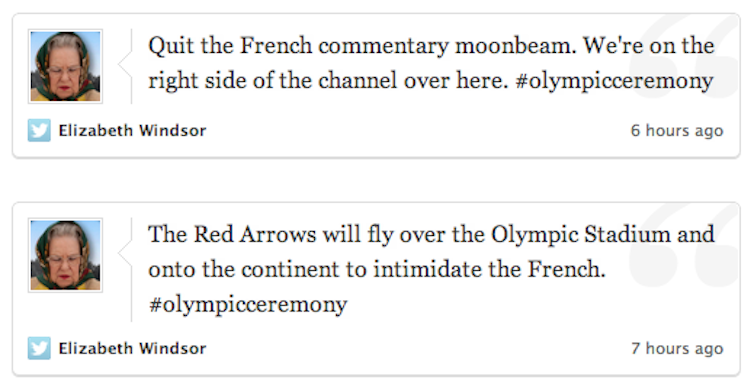

Winner: Mr Bean
The other character of most memetic value in the opening ceremony was UK comedian Rowan Atkinson’s character, Mr. Bean. During the ostensibly solemn tribute to athletes, using the Chariots of Fire musical theme and film, Mr. Bean took the part of a disgruntled and bored pianist with a single repeating note to play, with increasingly outlandish antics.
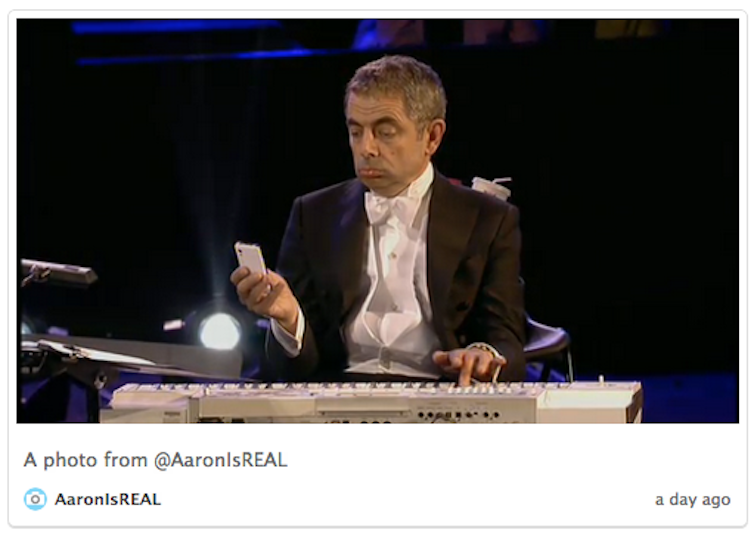
This was amusing in and of itself, but his boredom during the song became part of the later meme of audience boredom at the very long progression of athletes. Versions of his image checking his watch or otherwise engaged were treated increasingly frequently during the parade.
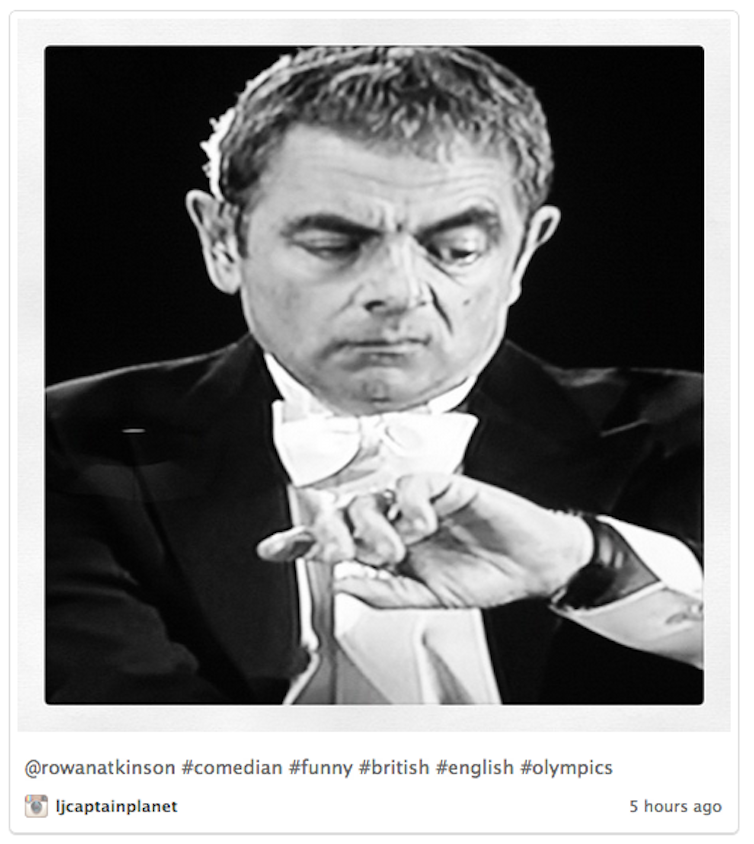
Winners in the fiction category: Lord of the Rings, The Hunger Games, Harry Potter - Loser: Dr Who
As the opening ceremony got underway, its sense of magical realism started to remind many social media users of recent fantasy films. The Lord of the Rings featured strongly in initial responses about how much the “green and pleasant land” reminded people of the Shire.
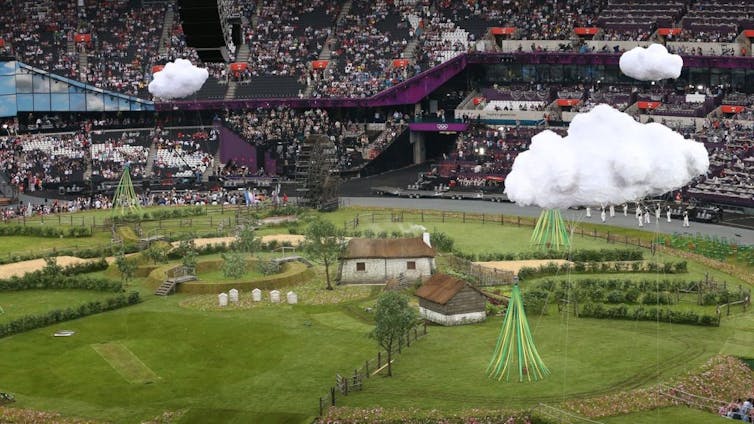
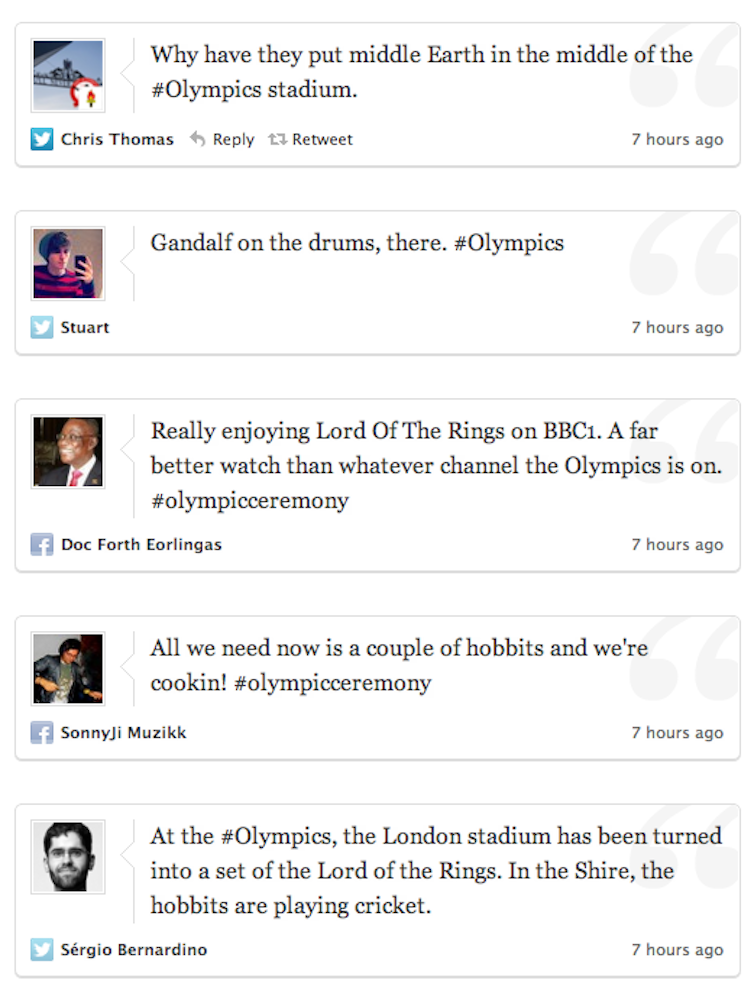
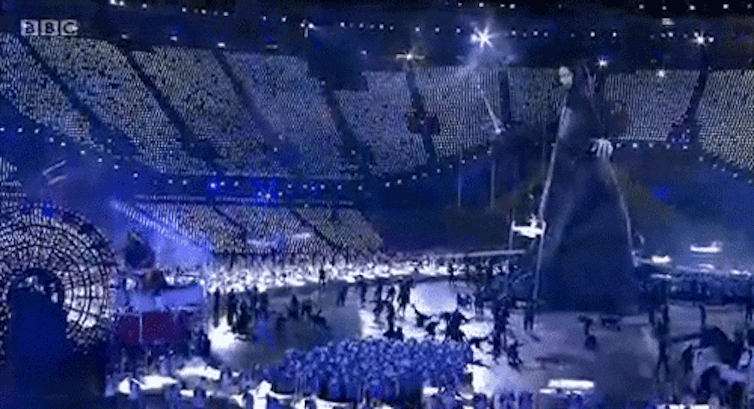

The Hunger Games also received apt nods.
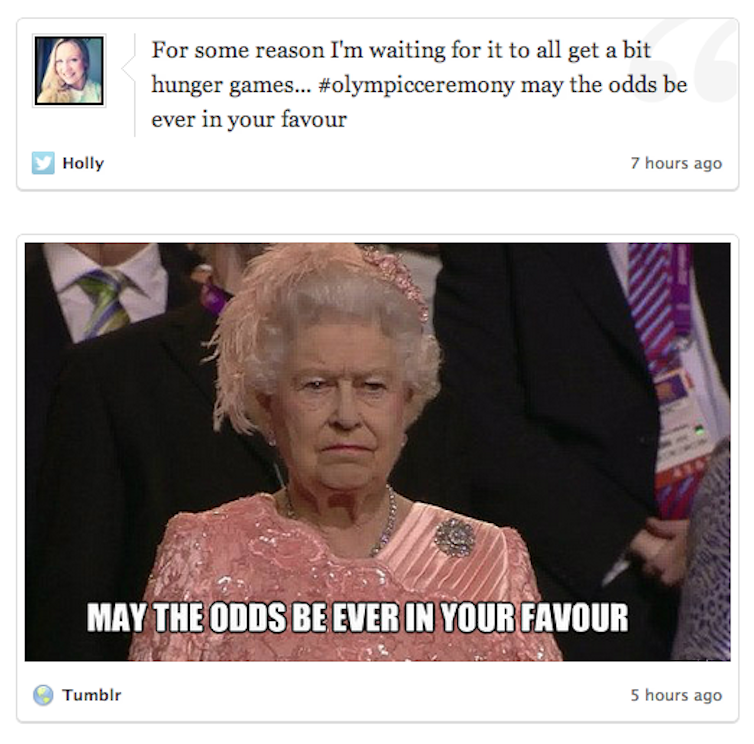
Dr. Who, the classic UK science fiction character, was expected but never appeared (well, only tangentially, as one Who fan noticed, in the form of Rowan Atkinson).
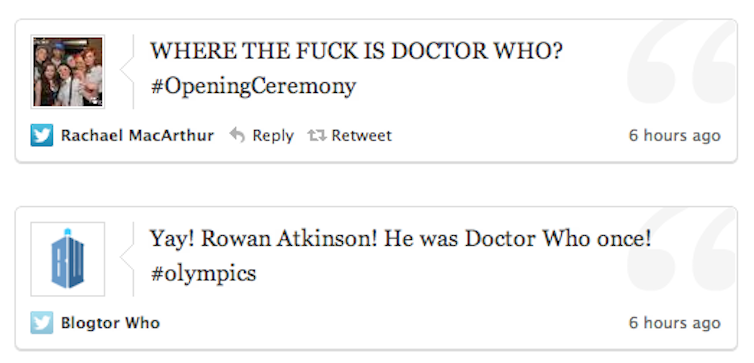

And, finally, there were many Harry Potter links, although these were in part driven by the participation of JK Rowling.

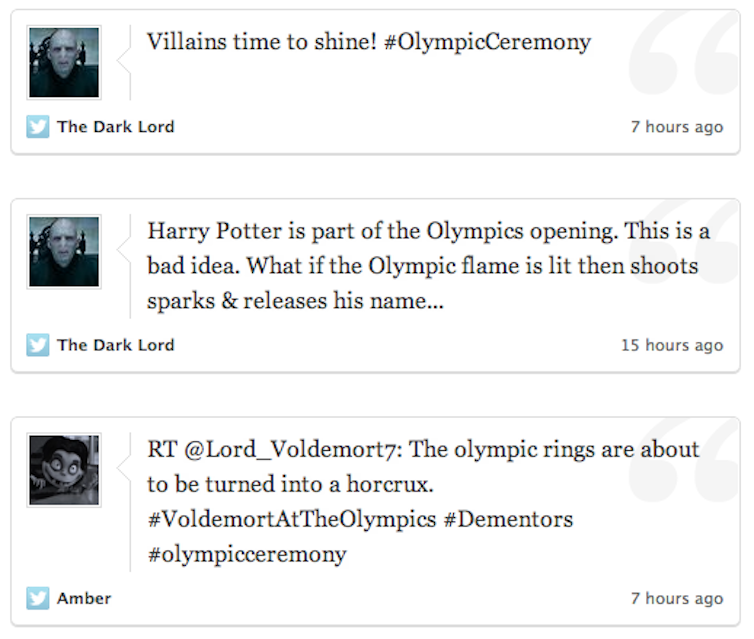
Although the Harry Potter character Voldemort was not officially part of the proceedings, he was linked to Mary Poppins when a flashmob mass of Mary Poppins clones appeared to vanquish one of the odd monsters in the ceremony.
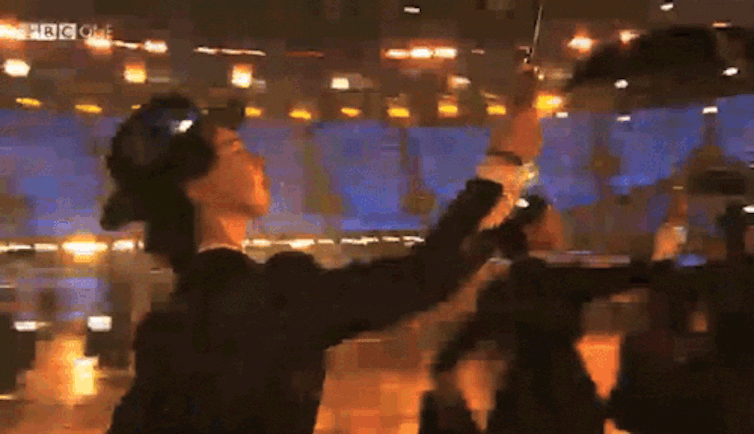
Winner: NHS - Loser: conservative politicians
Boyle included a stirring tribute to the UK’s National Health Service (NHS) as a cornerstone of British values. Images of the NHS initials spelled out on the stadium floor were rapidly retweeted, along with politicised comments about the value of the service, including images of David Cameron wincing upon seeing the lauding of the service.
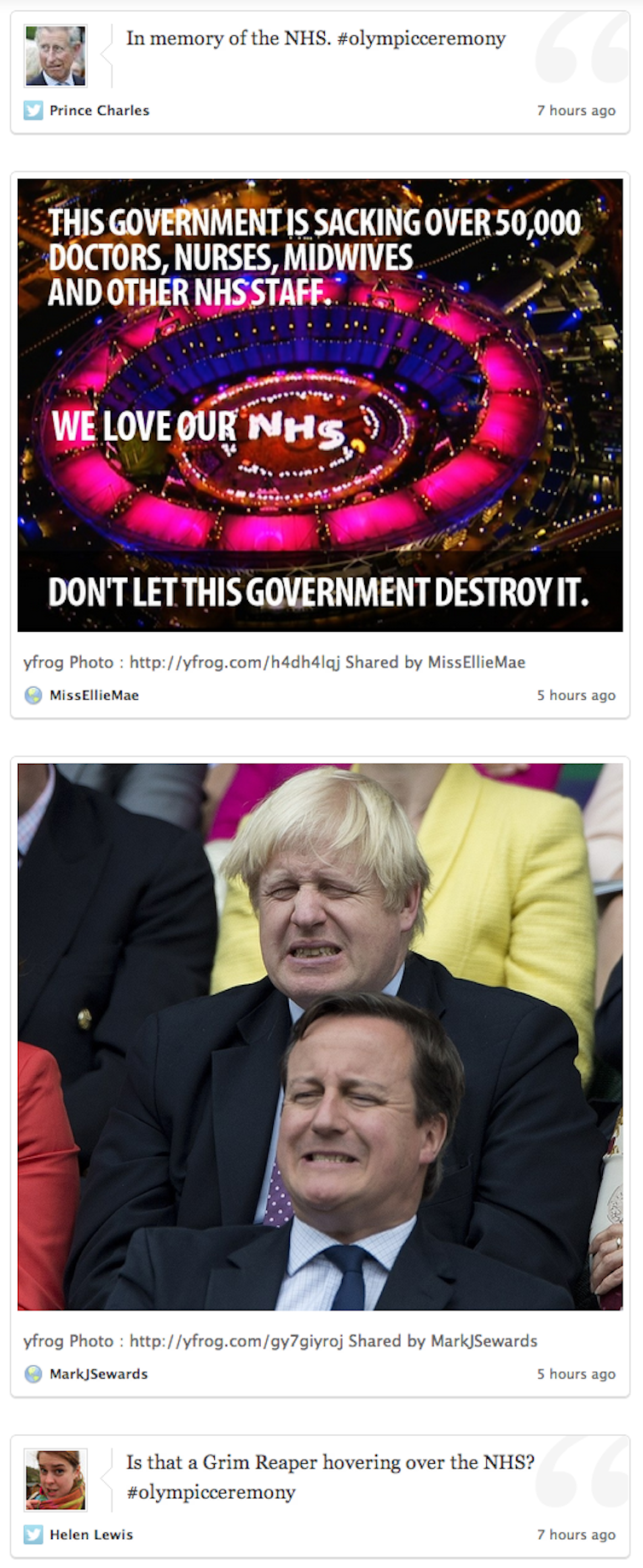
One conservative politician, Aidan Burley MP, was unhappy with most of what he considered to be a very left-leaning opening ceremony.
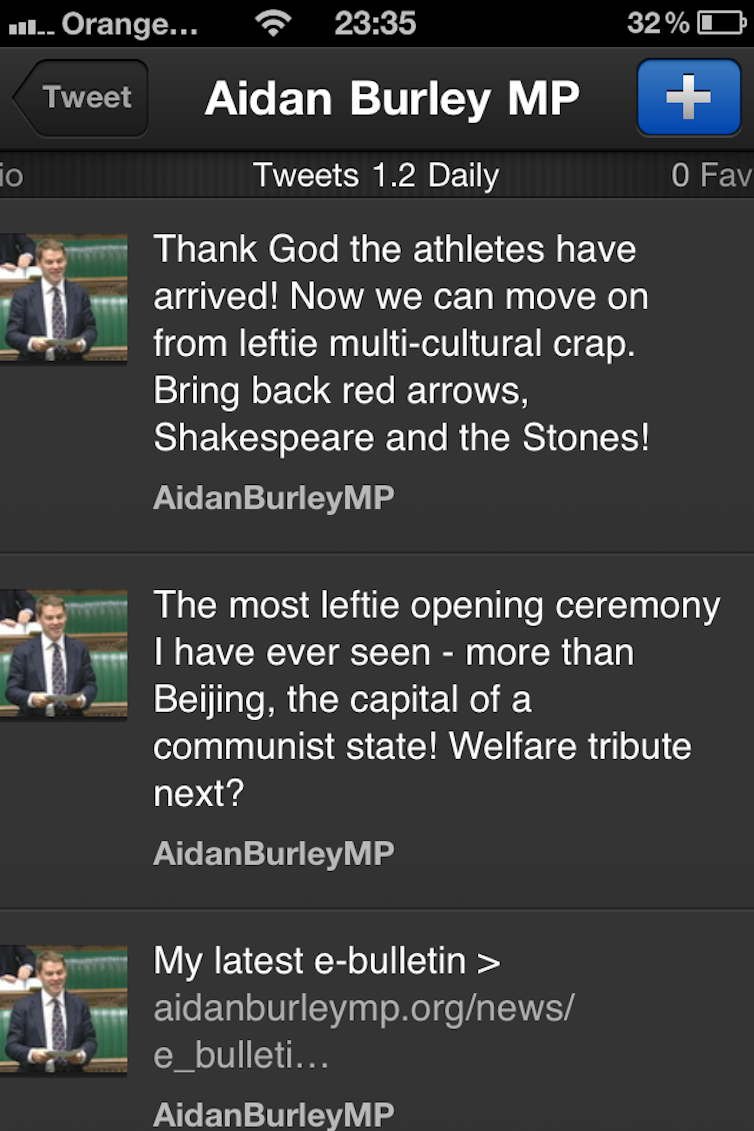
US Republican Presidential Mitt Romney, who has made few friends with his apparent criticism of the handling of the Games, received a few stings about both the quality of the opening ceremony and the health-care issue.



Winner: Czech gumboots, female athletes - Loser: athletes in general (especially from lesser-known countries)

The athletes parade is historically one of the less exciting aspects of the opening ceremony, and many posts indicated unhappiness with the length of the ceremony along with mystification about many of the nations involved.


Eventually the sentiment of boredom began to mash-up memes developed during the ceremony itself, becoming both inter-textually and self-referentially amusing.

However, there were some stand-out winners in the athletes parade. Female athletes, especially those from more religiously conservative nations, were welcomed in many tweets and retweeted images.
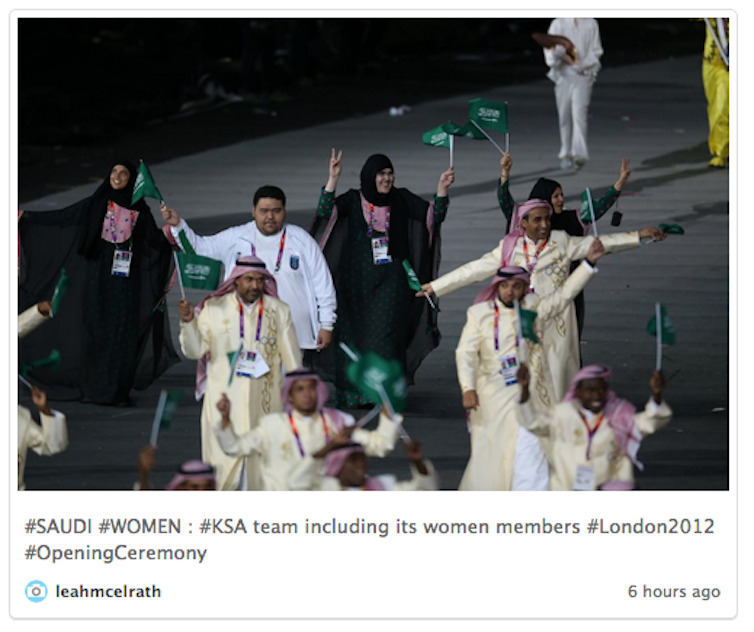
Fashion do’s and don’t’s were also a common topic of posts. The Czech Republic were probably the recipient of most discussion about their uniform choice, especially by Australian tweeters.
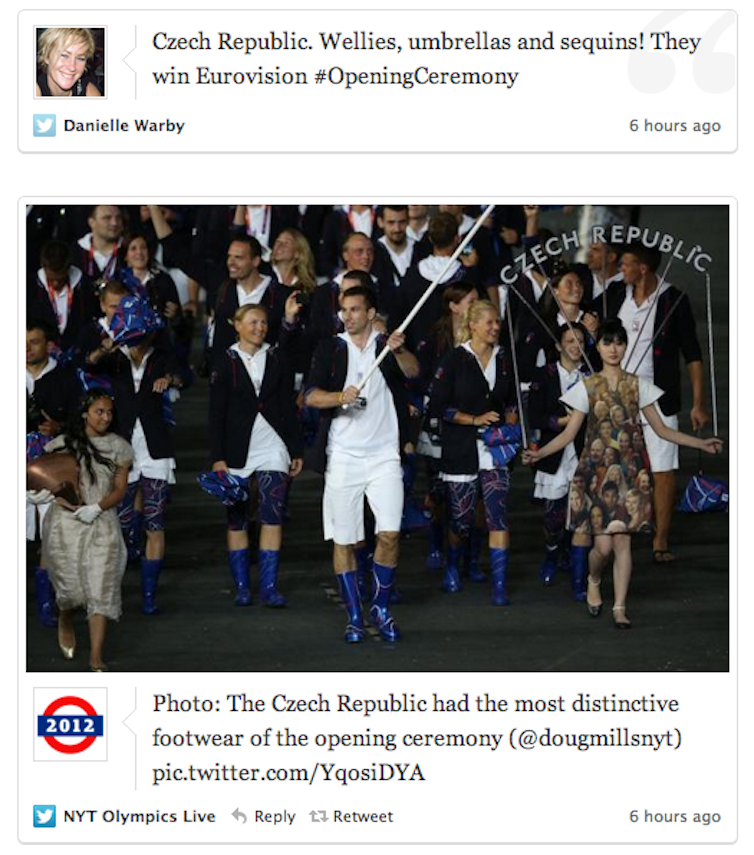
Loser: Germany
Germany suffered an unfortunate salute malfunction during the parade of athletes. One of its dignitories raised his arm in salute and the Twittersphere went full Nazi.
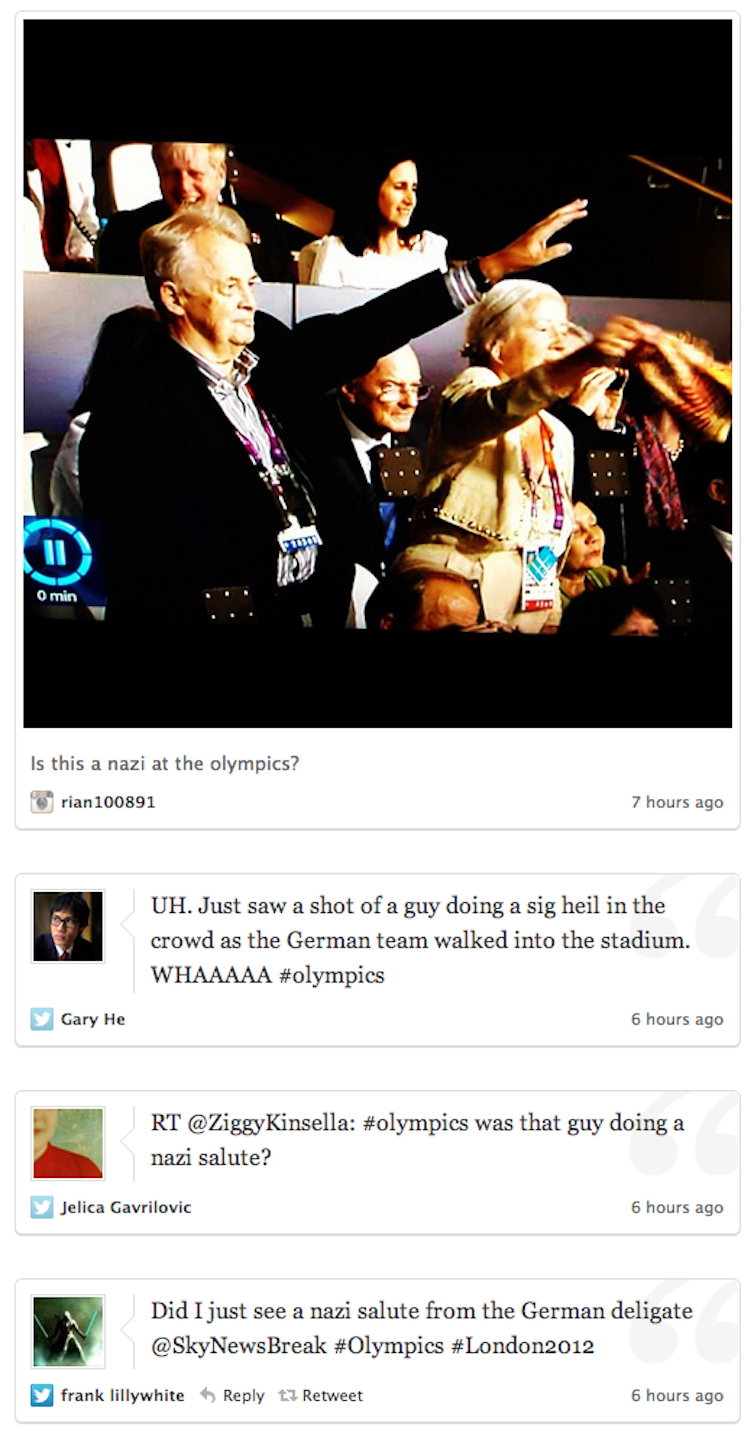
The biggest loser: NBC - because of the internet
NBC, which had decided to follow a long-standing tradition of providing only highlight packages rather than live broadcasting of foreign Olympics, felt the ire of Americans, who were seeing the world live-tweet and blog about this amazing ceremony.
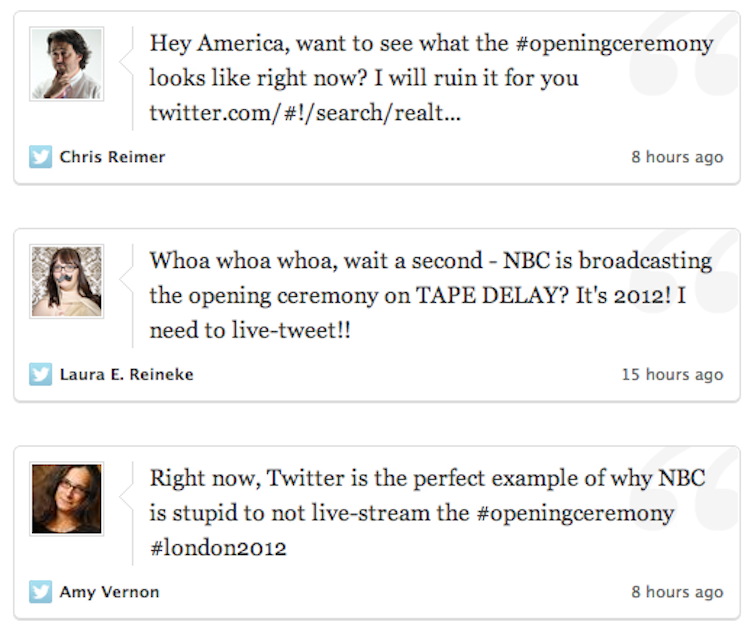
The biggest runner-up: the internet
Inventor of the protocol upon which the Web is based, UK scientist Sir Tim Berners-Lee, live-tweeted from the stage.
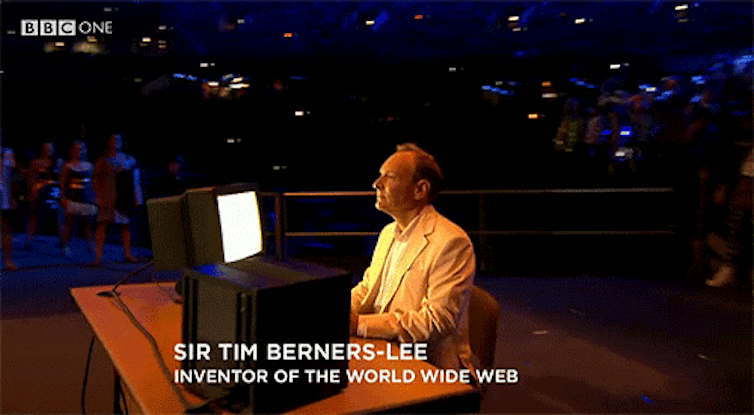

The tweet was displayed in lights in the stadium, as well as going out to Twitter’s global audience.
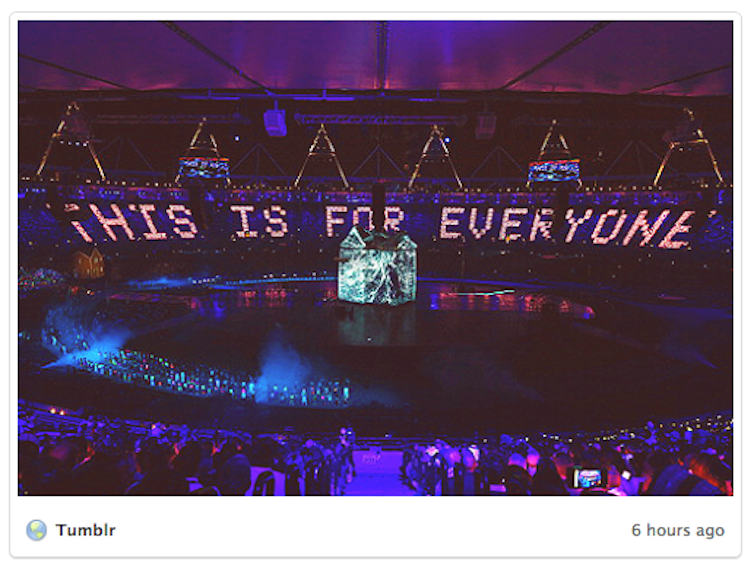
This was the most symbolic representation of the arrival - and now permanent residency - of the #socialympics.
The biggest winner: the UK
By the end of the opening ceremony, the building consensus of enjoyment had become a tidal wave of pride for the UK and admiration from the world. These, too, were expressed through memetic appropriations.
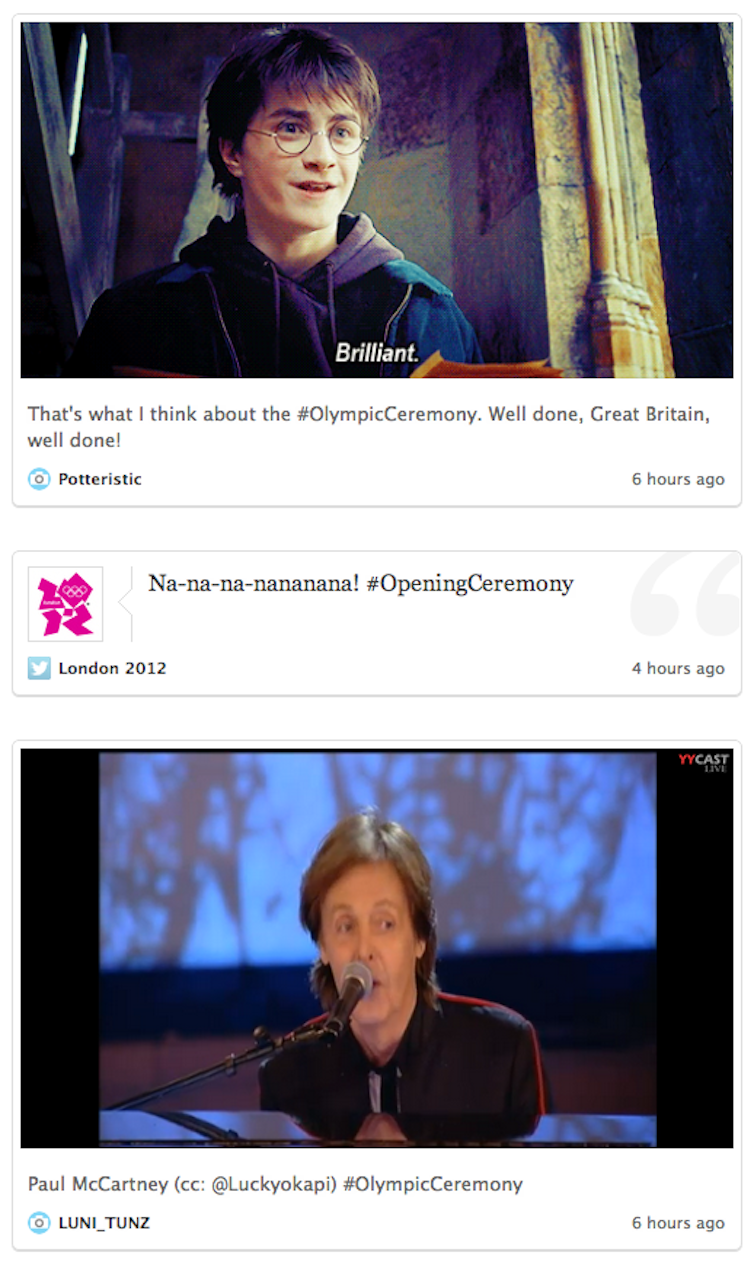
Additional material: Storify pages
The following Twitter pages provide a stronger sense of the narrative progression of the trends discussed above and other social media trends during the opening ceremony.
Mashable: SPOILER ALERT: This Is What The Opening Ceremony Looks Like
Additional contributors to this story
Kathleen Noon, Rodney Hudson, John O'Hare, and Nancy Upadhya from the University of Queensland School of Journalism and Communication participated in collecting material and providing trend information for this story.

